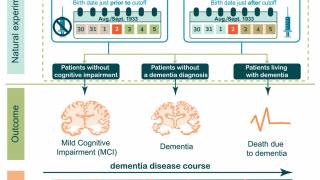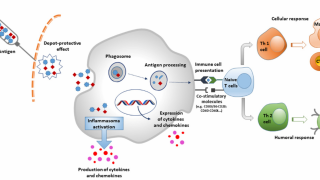Can Shingles Vaccination Reduce Dementia, Heart Disease, and Zoster Outbreaks

Recent studies have revealed that a very effective Herpes Zoster vaccine may offer risk-reduction benefits for other diseases.
These new findings suggest that the U.S. CDC-recommended shingles vaccination may be beneficial as a public health strategy for reducing two additional diseases, cardiovascular disease and dementia.
As most older people know, vaccination is the best way to protect oneself against shingles and related complications, such as postherpetic neuralgia (PHI), the most common complication from shingles.
The CDC says the pain from PHN can be severe and debilitating.
Vaccination is over 90% effective at preventing shingles and PHI in older adults and those with weakened immune systems.
And recently, two studies have reported that shingles vaccination offers significant benefits for cardiovascular and dementia reductions.
According to a study of more than a million people published in the European Heart Journal in May 2025, shingles-vaccinated people have a 23% lower risk of cardiovascular events overall, a 26% lower risk of major cardiovascular events (a stroke, heart attack, or death from heart disease), a 26% lower risk of heart failure, and a 22% lower risk of coronary heart disease.
"There are several reasons why the shingles vaccine may help reduce heart disease," commented Professor Dong Keon Yon from the Kyung Hee University College of Medicine, in a press release on May 5, 2025.
"A shingles infection can cause blood vessel damage, inflammation, and clot formation that can lead to heart disease. By preventing shingles, vaccination may lower these risks."
Regarding dementia prevention, a study published in JAMA on April 23, 2025, found evidence of a beneficial effect of herpes zoster (HZ) vaccination in preventing or delaying dementia.
In this quasi-experimental study using electronic health record data from Australia, eligibility for herpes zoster vaccination decreased the probability of receiving a new dementia diagnosis by 1.8 percentage points over 7.4 years.
These study authors hypothesized that the reduced incidence of dementia is likely due to either the reduced reactivations of the varicella zoster virus, which remains in the body for life after the initial infection, or overall improvements to the immune system.
Previous studies also showed that HZ vaccination appears to prevent or delay the onset of dementia by about 20%.
While these studies show that the herpes zoster vaccine's off-target immunological effects could change current CDC recommendations, additional clinical studies will be required to confirm these expanded indications.
Until then, these data and others clearly show that herpes zoster vaccination benefits most people.
Our Trust Standards: Medical Advisory Committee











